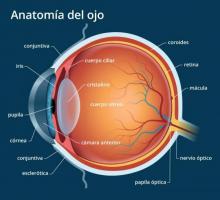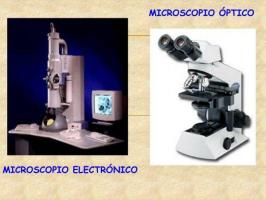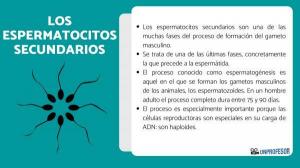Structure and function of the MYTHOTIC SPINDLE

The cell is the functional and structural unit of all living things. However, cells have a life, at the end of which they end up dying. For that reason, and to maintain normal body function, they must divide into daughter cells. In this process, they duplicate and divide their genetic material between the two daughter cells, but for this process to occur correctly, a structure called the mitotic spindle is necessary. In this lesson from a TEACHER we will talk about structure and function of the mitotic spindle. If you want to know more, read us below!
Index
- Definition of the mitotic spindle
- Cell division
- Mitotic spindle function
- Other functions of the mitotic spindle to investigate
Definition of the mitotic spindle.
The mitotic spindle or achromatic spindle, often referred to as mitotic machinery, is a cell structure that forms during the period of cell division (both of the mitosis as of the meiosis) and are protein in nature as they are made up of microtubules. The mitotic spindle is essential for the equitable sharing of genetic material between the two daughter cells that result from division.
The spindle is about a protein or microtubule microfibril system that are arranged longitudinally to the cell. The spindle is formed during the cell's division period between the centromeres of the chromosomes and the centrosomes arranged at the cell's poles. This centrosome is the area where all the cell's microtubules originate, both those of the mitotic spindle and those that form the cytoskeleton (skeleton of cells), which are made up of tubulin dimers (a protein).
Types of microtubules
There are three classes of microtubules which are the ones that will be part of the mitotic spindle:
- kinetochoric microtubules
- polar microtubules
- those of the aster
This system of microtubules manages to stay together due to interactions between them, lateral, terminal between the microtubules kinetechic, between the overlapping ends of the polar microtubules or between the kinetochoric and sister chromatids of the chromosomes.

Image: Youtube
Cell division.
To understand the mitotic or achromatic spindle it is necessary to have a general understanding of the process by which cells divide into two daughter cells. Cell division is made up of a preparatory period in which the genetic material of cells is duplicated, a phase of equitable distribution of genetic material or mitosis (meiosis in sex cells) and a division of the cytoplasm or cytokinesis.
The period of mitosis (or meiosis) occurs in several phases: prophase, prometaphase, metaphase, anaphase and telophase. At the beginning of this period, the chromosomes begin to condense, forming two identical filaments called chromatids. Each of these chromatids is made up of a DNA molecule identical to the other, since DNA has been duplicated previously. These chromatids are linked together in a region called the centromere, which plays a very important role in the migration of chromosomes to the poles of the cell.
Simultaneously with the condensation of chromosomes, this mitotic spindle is forming (which we talked about previously). During the metaphase phase, the fully condensed chromosomes lie in the equatorial plane of the dividing cell and the microtubules Kinetochoric spindle that start from the poles of the cell, are attached to the centromere of chromosomes by a protein structure called kinetochore. Later, during anaphase, these microtubules begin to shorten, pulling the chromatids of the chromosomes to each of the poles.
Cell division takes place throughout the life of organisms. It is estimated that throughout the life of a human being there are about 1017 cell divisions. Meiotic division occurs in much the same way as mitotic division, only in gamete-producing cells or sex cells.
Function of the mitotic spindle.
The mitotic or achromatic spindle is a very important cell structure whose function is:
- Anchor chromosomes by their kinetochores
- Align them in the equatorial plane of the cell or metaphase plate
- Allow identical chromatids from each chromosome to migrate to each of the poles of the cell in division, thus allowing a balanced distribution of genetic material between cells daughters.
Due to this important function, errors during this process can determine that cells without chromosomes or with more chromosomes appear than normal, which translates into lethality in organisms, serious malformations during embryonic development or various pathologies.
Such is its importance, that some drugs such as antifungals for the treatment of fungi or antineoplastics for cancer induce the malfunction of the spindle.

Other functions of the mitotic spindle to be investigated.
Some are shuffled possible additional functions of the mitotic spindle that have not yet been proven, such as the hypothesis that spindle microtubules participate in the location where the structures will form responsible for the division of the cytoplasm, since it was observed that this always occurs in the midline of the spindle, where the microtubules overlap polar.
If you want to read more articles similar to Structure and function of the mitotic spindle, we recommend that you enter our category of biology.
Bibliography
- Cambiasso, M. J. CELL CYCLE AND MITOSIS.
- Fernández, L. M. (2020). Study of asymmetries associated with the mitotic spindle of Saccharomyces cerevisiae: new regulators of the positioning of the spindle and non-random inheritance of microtubule organizing centers (Doctoral dissertation, University of Seville).



